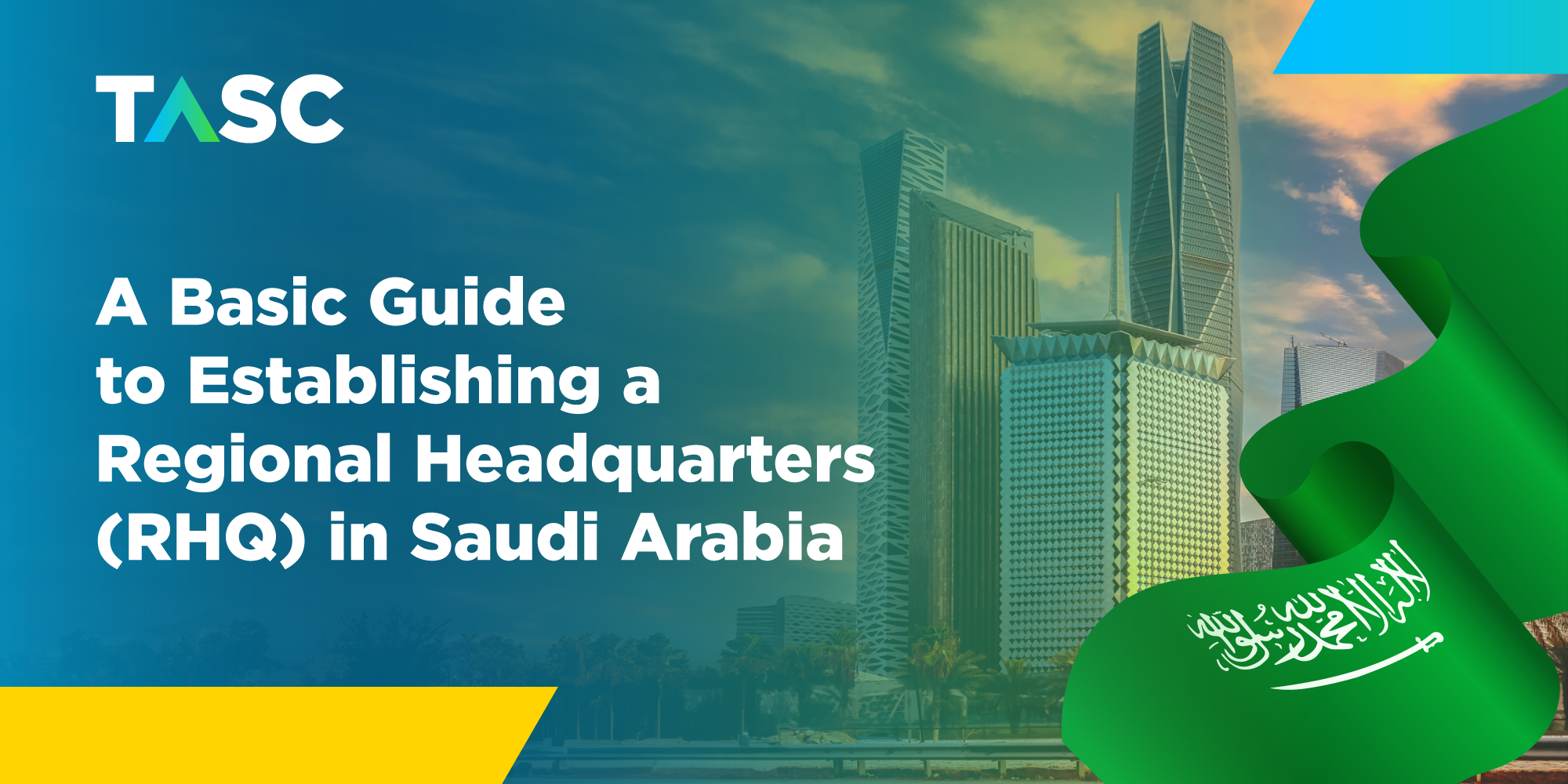A Basic Guide to Establishing a Regional Headquarters (RHQ) in Saudi Arabia
Considering expanding your business into Saudi Arabia? It's vital to know the essentials of setting up a Regional Headquarters (RHQ). As the fastest-growing G20 nation, Saudi Arabia presents a lucrative market. The Royal Commission for Riyadh City (RCRC) and the Ministry of Investment (MISA) have introduced the RHQ program to position Saudi Arabia as the central hub for multinationals in the MENA region. This guide provides an in-depth look at the Saudi RHQ Program.
Understanding Saudi Arabia's Regional Headquarters Programme
An RHQ is the central office of a multinational corporation in a specific world region, managing and directing its regional operations. The Saudi RHQ program has gained prominence in recent years as part of the country's Vision 2030 initiative. It offers numerous incentives and benefits to companies that establish their regional headquarters in Saudi Arabia, including tax incentives, streamlined regulations, and access to the growing Middle East market. Starting January 1, 2024, the Saudi government will only engage with foreign companies that have an RHQ within the kingdom. This policy affects all MENA countries.
In December 2023, Saudi Arabia exceeded its initial target of establishing 160 regional headquarters for global companies by the end of 2023. In an exclusive interview with Bloomberg on the sidelines of a conference, Khalid A. Al-Falih, the Saudi Investment Minister, stated that the Kingdom not only reached this goal but continues to expand, with plans to grant licenses to 10 companies per week.
Now, Saudi Arabia hosts over 200 regional headquarters, with a diverse range of industries represented. Key sectors include:
- Energy and Infrastructure: Companies like Schneider Electric, ABB, Siemens, Philips, Schlumberger, GE Healthcare, and Baker Hughes.
- Construction and Engineering: Firms such as Bechtel and Egis Group.
- Legal and Financial Services: Notable firms include Northern Trust, White & Case, and PwC.
- Consumer Goods and Retail: Companies such as PepsiCo and Unilever.
- Hospitality and Tourism: Represented by companies like IHG Hotels and Resorts.
- Technology and Telecommunications: Major players include Huawei, Dahua Technology, and China Comservice.
- Logistics and Security: Companies like Nuctech and iMile Delivery.
What Are The RHQ Requirements & Regulations in Saudi Arabia?
- Your company should have operations in at least two countries, besides Saudi Arabia or its headquarters location.
- The Saudi Arabian RHQ should function as a distinct division or branch separate from the main company.
- Commence essential operations within six months after obtaining the RHQ License from MISA. For further insights into the MISA License and its benefits for your business in KSA, explore our detailed blog, MISA License: Unlock Profitable Business Opportunities in Saudi Arabia.
- Acquire and submit a verified copy of your company's last financial year's consolidated audited financial statements, certified by the Saudi Embassy.
- Complete and submit the online application form for the RHQ.
What Are The Types of RHQ Activities in Saudi Arabia?
Mandatory Activities: Strategic direction, management functions, regional market analysis, marketing strategies, and operational and financial reporting.
Optional Activities: Support in sales, marketing, HR, training, financial oversight, compliance, legal, auditing, research, logistics, technical support, and more.
What Is The Saudi RHQ License Fee?
An annual fee of SAR 2,000, with an additional SAR 10,000 in the first year, is required for a license valid for 1 to 5 years.
What Are The Benefits of an RHQ License in Saudi Arabia?
- Exemption from Saudization for 10 years
- Access to work visas, including for positions typically reserved for Saudi nationals
- No cap on work visas for RHQ employees
- Dependents of RHQ staff can seek employment under the Ajeer program
- Sons of RHQ employees can stay until 25 years of age
- Recognition of foreign work qualifications
- Waiver of MISA fees after the first year
- Reduced service fees from MISA
What Are The Exemptions for Companies Without a Regional Headquarters?
Based on a decision taken by the Council of Ministers on December 26, 2023, six specific cases allow companies to engage with Saudi Arabia even if they do not have a regional headquarters in the country. These exemptions are significant for businesses exploring opportunities in the Saudi market:
- Short-Term Projects: Companies engaged in short-term projects in Saudi Arabia, such as construction or events management, may not need a regional HQ
- Trade and Commerce: Businesses primarily involved in trade and commerce activities can conduct their operations without the need for a regional HQ
- Investment Companies: Companies solely engaged in investments, such as venture capital firms, can interact with Saudi Arabia without establishing a regional HQ
- Participation in Government Projects: Companies participating in government projects or tenders are exempt from having a regional HQ
- Provision of Consultancy Services: Consultancy firms offering services in Saudi Arabia do not require a regional HQ
- Providing Services to Subsidiaries: Companies providing services exclusively to their subsidiaries or affiliates in Saudi Arabia are also exempt from the RHQ requirement
Streamlining Your RHQ Set-up in KSA
TASC offers comprehensive assistance in obtaining an Regional Headquarters (RHQ) license and establishing a business in Saudi Arabia, leveraging its strong ties with MISA. With over 16 years of experience, our experts can guide you through the legal and regulatory landscape, offering free consultations to kickstart your Saudi operations. TASC is your trusted partner in unlocking the potential of the Saudi market. Contact us today to start your journey toward successful business expansion in the Kingdom. Get in touch with us to learn more about how we can assist you in your RHQ establishment process.


.png)

-1.jpg)
